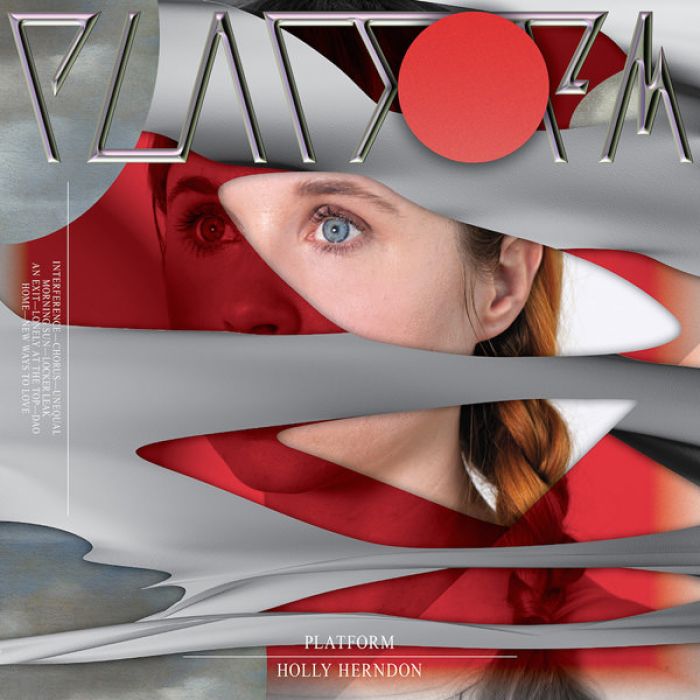Holly Herndon’s Electronic Music Dazzles, Disorients on Platform (Review)

The music on Holly Herndon’s Platform arose out of her studies at Stanford University’s Center for Computer Research in Music and Acoustics, studies that focused on how humans respond physically to sound. Among other things, this has lead to live performances where Herndon uses tiny microphones on her hands to manipulate the physical sounds generated by her laptop and incorporate them into her music.
This could lead one to believe that Platform is a dry academic treatise, an unlistenable and/or pretentious musical dissertation. But what’s so fascinating about Platform, all academic pretense aside, is just how listenable it can be. Frequently disorienting to be sure, but listenable and enjoyable nonetheless.
“Interference” and “Chorus” sound like a million songs cut up into a million pieces and then pieced together by software — Herndon also writes her own music software, by the way — in the image of some arcane algorithm. Swarms of beats, synth patches, and vocals slices swirl around the listener, challenging you to reassemble them into something recognizable and structured even as you can detect, perhaps on a near-subliminal level, a method to Herndon’s madness. (A method that recalls Markus Popp/Oval, Autechre, The Knife, and Björk all at once.) At the same time, there’s something joyous and even giddy about the way the songs’ seemingly choatic sounds weave in and out of each other. Or, as Will Hermes puts it, “it feels like abstracted blueprints of the electronic pop music we hear everywhere — beautiful in and of themselves, but also suggesting invisible forms, phantom grooves, and ghost melodies that the listener can flesh out in their mind.”
Put simply, at its best, Platform shows that music can be both incredibly high-concept and supremely engaging.
That’s not to say that Platform isn’t a challenge. “Unequal” blends choral vocals and spoken word with more laptop cut-ups and washes of strange electronic gurglings. Imagine music for a post-Singularity religious ceremony, perhaps. In any case, there’s a reverent, even sacred feel to the music in spite of its fractured nature. “Locker Leak” seems constructed entirely out of manipulated vocal snippets with Herndon inserting fragments of manifesto-like spoken word samples.
There are moments when the album’s pretense becomes too much, though. The most egregious example of this is “Lonely At The Top,” a spoken word/performance piece that employs “autonomous sensory meridian response” to stimulate the listener. Against a backdrop of sensual and environmental sounds, Claire Tolan whispers sweet nothings (e.g., “We feel so lucky you chose us,” “I’m so glad you’re taking the time to take care of yourself”) to an imaginary one percenter, supposedly to point out the silliness of the ultra-rich or something. But the song’s concept gets old and heavy-handed by the 30-second mark, and the rest of it is spent rolling your eyes.
For the most part, however, Platform contains a perfect marriage between the machine and the human. Songs like “Interference,” “Morning Sun,” and “Home” would be inconceivable apart from computers and software, but that reality does nothing to diminish the humanity behind the sonic kaleidoscope. Quite the opposite, in fact. For all of its artificiality, there’s very little that’s cold, clinical, or merely “academic” about Platform.